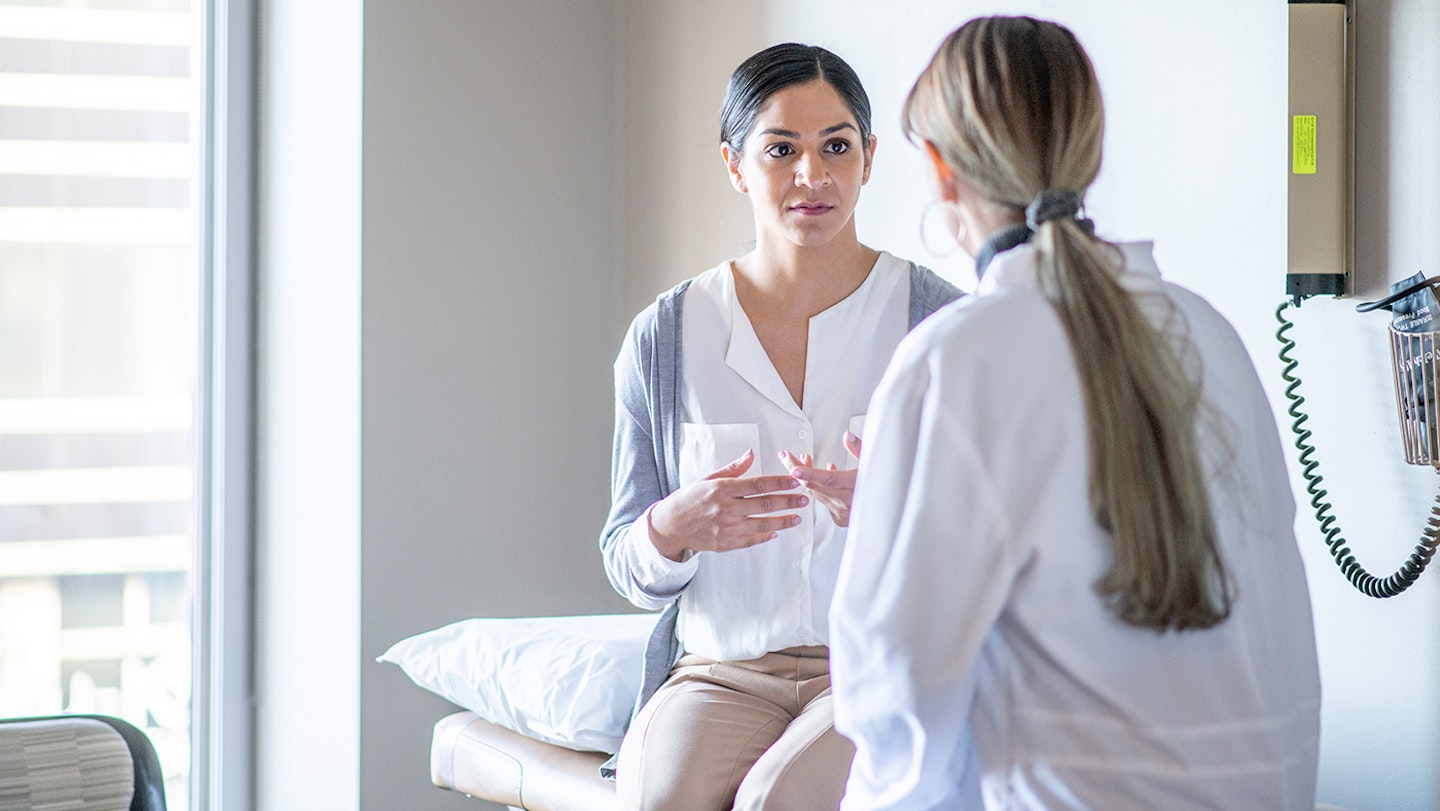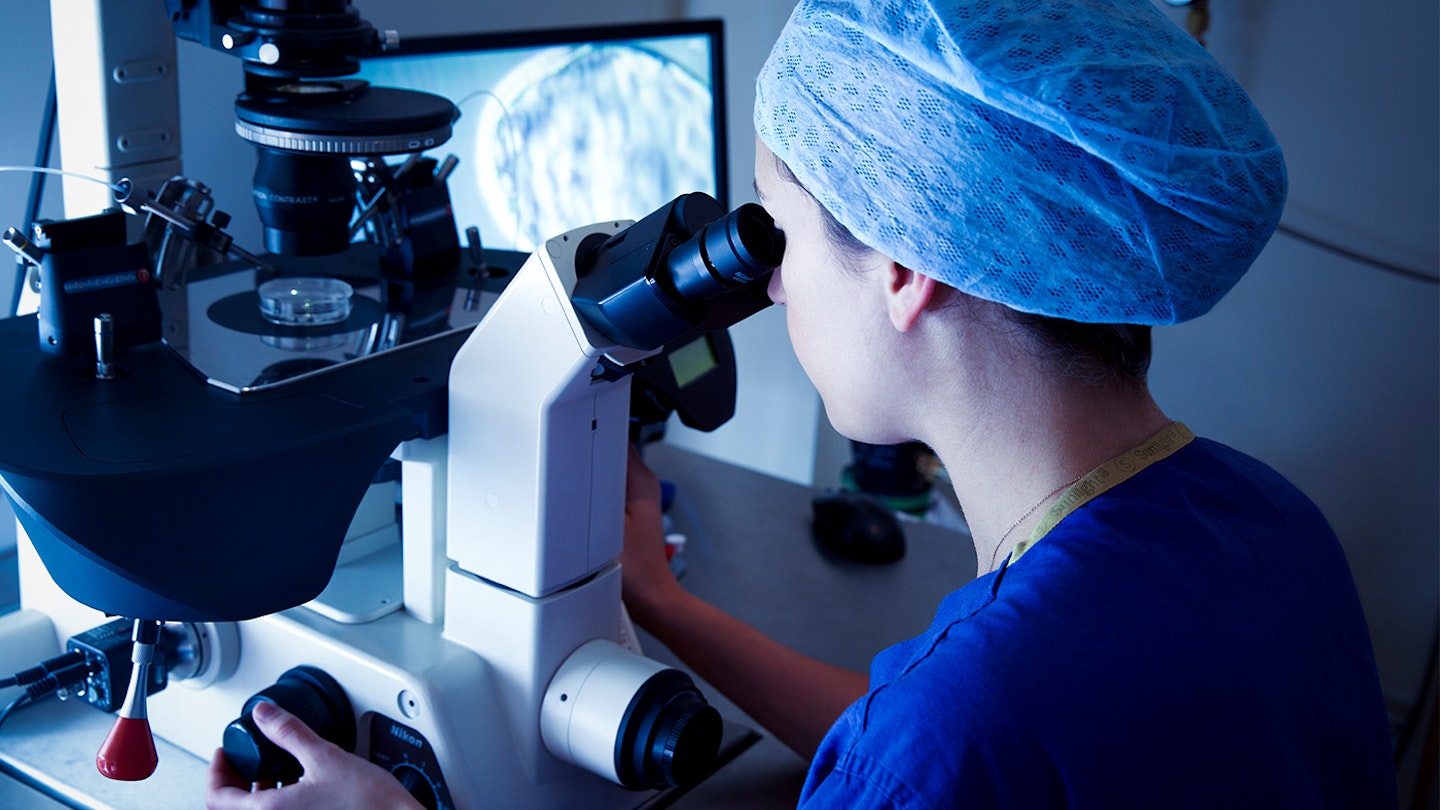For women who don't have viable eggs, pregnancy can be a challenging path that can require her to rely on donated eggs. These donated eggs can then be fertilised by her partner's or a donor's sperm before being implanted into her uterus where it will hopefully grow into a healthy pregnancy.
Together with the Human Fertilisation and Embryology Authority, the UK’s independent regulator of fertility treatment and research using human embryos, we explain everything you need to know about egg donation in the UK.
What is egg donation?
Egg donation is when a woman goes through part of the IVF process in order to have some of her eggs collected, which she can then donate to someone else's treatment or fertility research.
Why are donated eggs used?
There are several reasons why donated eggs might be required for a woman to get pregnant. These include:
• If any children born are at risk of inheriting a genetic disease.
• If she has had cancer treatment.
• If she has gone through the menopause.
• When it will give someone a better chance of achieving a successful pregnancy.
Who can donate eggs?
In most cases, you need to be under 36 to donate your eggs to someone's treatment although some clinics do allow eggs from an older woman if donating to a family member.
Before donating, you'll undertake certain health tests to ensure you don't pass on any serious diseases or medical conditions to the baby or mother. You should also tell your clinic about any inheritable diseases in your family.
Certain clinics may also set additional eligibility criteria, including minimum and maximum Body Mass Indexes (BMIs).
Do you get paid for donating eggs?
While it is illegal to pay for egg donation in the UK, you would receive compensation of up to £750 per donation cycle to cover your costs. You would be able to claim more if your expenses for the likes of travel, accommodation and childcare are higher than this.

What is the egg donation process?
Personal information: Your clinic will ask you to provide some personal information. Certain non-identifying information will be available to the hopeful parents at the time of donation and any children conceived with your donation when they turn 16. Your identifying information will be available to any donor-conceived children when they turn 18.
Health tests: You’ll need to have tests for certain diseases, including any serious genetic diseases before you can donate. It’s vital to tell your clinic about any problems in your, or your family’s, medical histories. If you or your family have a serious physical or mental condition and you don’t tell your clinic about it, you could face legal action if a child born from your donation inherits it.
Counselling: Your clinic is required by law to offer you counselling. This is strongly recommended as it will help you to think through all the implications of your decision and how it could affect you and your family in the future.
Your consent: You will need to consent in writing before donating your eggs. You can change or withdraw your consent.
Donating: The process for donating is exactly the same as the early stages of IVF.
-
Medication taken as a daily injection or nasal spray will suppress your natural hormone production. This will give your doctor complete control of the fertility process.
-
You’ll have a scan to check your natural cycle is fully suppressed. If it is, you’ll start hormone treatment (usually gonadotrophins) to boost the number of eggs your body produces.
-
A day or two before your eggs are due to be collected, you’ll be given a hormone injection (normally human chorionic gonadotrophin or hCG) to help the eggs mature.
-
Your eggs will be collected whilst you’re sedated or under general anaesthetic. The procedure takes around half an hour and you may feel a little sore or bruised.
-
Whilst your eggs are being collected, the woman’s partner will be asked to produce a sperm sample (or her donor’s sperm will be taken from the freezer) for mixing with your eggs.
What are the egg donation risks?
Donating eggs is typically very safe and the majority of women do not experience any problems aside from the discomfort of the treatment itself.
A potential risk comes from having a reaction to the fertility drugs. The usual effects of this are mild and include hot headaches, flushes, restlessness and feeling irritable or down.
However, in some cases, women can develop hyperstimulation syndrome (OHSS), a very serious reaction to fertility drugs, which happens around a week after your eggs have been collected.
Symptoms for this include a swollen stomach and stomach pains and, in extreme cases, nausea, vomiting, breathlessness, fainting, a swollen stomach and reduced urine.
Can I donate eggs to a relative or friend?
Yes, you can, however, there are restrictions with mixing the eggs and sperm of close family members including brothers and sisters (half brothers and sisters too) or uncles and nieces. You would be fine to donate to any female relatives though.
Would I have any legal rights for any children born?
If you are donating through a licensed fertility clinic in the UK, you would have no legal rights or responsibility to any children born as a result of your donation.
Children born from your donation will be given the option to contact you when they reach 18 if they wish. It is then up to you whether you want to have any kind of relationship with them at that point.
Where do I start if I’m interested in donating my eggs?
If you’d like to donate your eggs, you’ll need to find a licensed UK fertility clinic that recruits egg donors. Or, if you’re donating to someone you know, their clinic should have processes in place that allow known donation. You can find a clinic using the HFEA’s ‘Choose a Clinic’ service.
